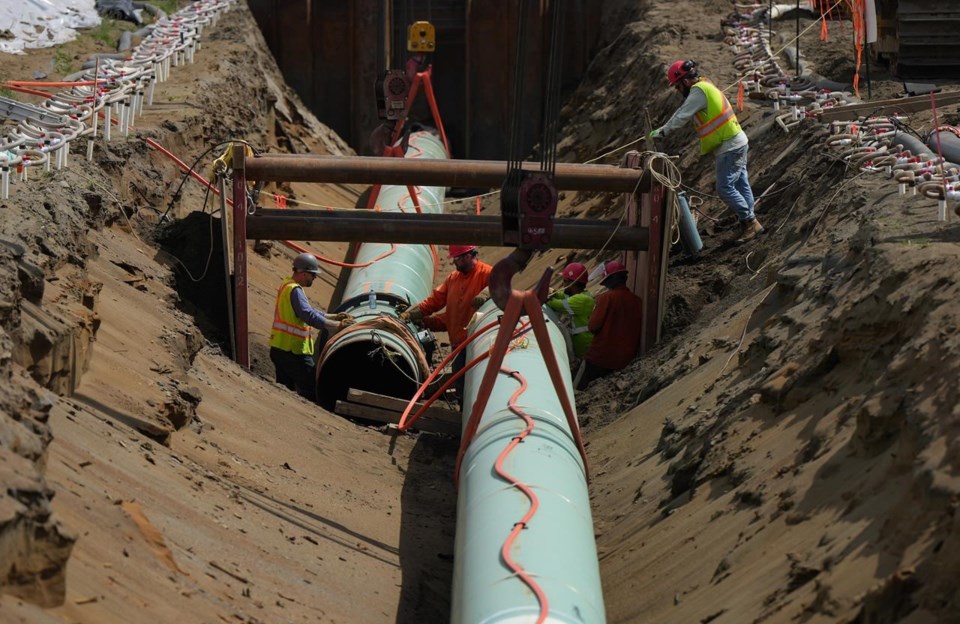CALGARY — The long-awaited Trans Mountain pipeline expansion is complete and the Canada Energy Regulator has given the go-ahead for the project to open.
The regulator said Tuesday it has approved the last remaining "leave to open" applications submitted by Trans Mountain Corp., the Crown corporation behind the project. Approval of these applications was required before the expanded pipeline could begin shipping oil.Â
Also on Tuesday, Trans Mountain confirmed that Wednesday, May 1 will mark the commercial start date for the expansion.Â
However, due to logistics and marine timing, the first transport ship is not expected to load with oil from the new line for export until the middle of May, a Trans Mountain Corp. spokesperson said.
The regulator's announcement marks the end of a 12-year journey. First proposed in 2012 by Kinder Morgan Canada, the pipeline expansion has been one of the most costly and controversial infrastructure projects in Canadian history.Â
The project — which was bought by the federal government in 2018 after Kinder Morgan threatened to scuttle the project in the wake of ongoing Indigenous and environmental opposition — twins the existing Trans Mountain oil pipeline system from Alberta to the B.C. coast.Â
It increases the system's shipping capacity from 300,000 barrels per day to 890,00 barrels per day, and will help open up global export markets for Canadian oil. That in turn is expected to help improve the price Canadian oil companies receive for their product.
But the pipeline's construction was marred by delays and cost overruns, ultimately taking four years to build and racking up a total cost of more than $34 billion.Â
The federal government, which purchased the pipeline for just $4.5 billion, has stated it does not intend to be the long-term owner of the project. It's widely expected to take a writedown if it sells.
The expansion project has also enabled Canada's oil industry to ramp up production in expectation of the additional takeaway capacity.Â
A recent TD Economics report suggested Canadian oil production in 2024 could grow by between six and 10 per cent year-over-year, the equivalent of between 300,000 and 500,000 barrels per day.
This report by The Canadian Press was first published April 30, 2024.
Amanda Stephenson, The Canadian Press




